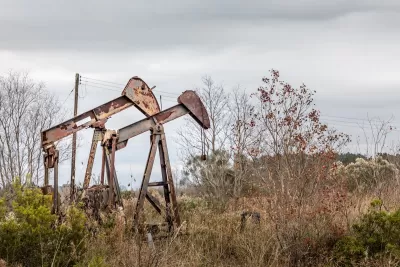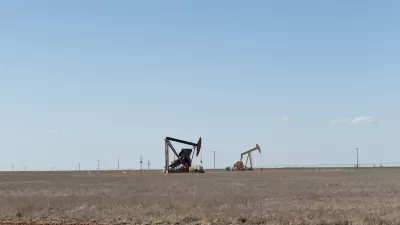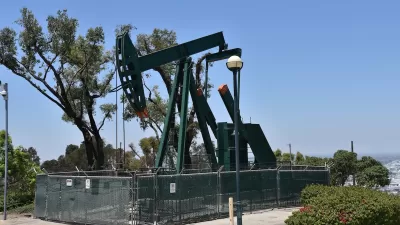Remediating and repurposing some orphan oil and gas wells into parks can turn environmental hazards into community assets, promoting health, environmental justice, and accessible green space for underserved areas.

Orphan oil and gas wells, abandoned with no responsible party, present significant environmental and health hazards across the U.S., especially in communities with a strong history of fossil fuel production. These sites release harmful pollutants, such as methane, contributing to air and water pollution and elevating climate change risks. As the nation transitions toward cleaner energy, addressing these orphan wells is crucial for environmental justice, particularly in marginalized communities that bear the brunt of pollution. By converting some of these hazardous areas into parks and public spaces, local governments and community advocates can help foster healthier environments and provide recreational spaces that benefit both individual well-being and community health.
Remediating orphan wells opens pathways to repurposing these areas into much-needed parks, enhancing green spaces, particularly in low-income neighborhoods. Parks offer more than just recreational areas; they improve air quality, provide spaces for physical and mental wellness, and help mitigate urban heat. This transformation aligns with the goals of a "just transition," prioritizing the communities most impacted by fossil fuel decline in recovery and restoration efforts. In regions where orphan wells are concentrated in densely populated, underserved areas, remediated sites can become valuable resources, addressing both public health concerns and the historical lack of accessible green spaces.
However, challenges such as high remediation costs and competing land-use interests complicate efforts to turn orphan well sites into parks. Parks and recreation advocates and professionals must navigate financial constraints, competition from commercial or residential developers, and community needs, making the case that green spaces offer long-term environmental and social benefits. Public-private partnerships may help bridge funding gaps but must be carefully managed to ensure that community interests and accessibility are preserved. With collaborative action and a focus on equitable outcomes, these remediated sites can be transformed into vibrant, accessible public spaces that benefit communities now and in the future.
FULL STORY: Addressing Orphan Oil and Gas Wells: A Path Towards Environmental Restoration and Justice

Maui's Vacation Rental Debate Turns Ugly
Verbal attacks, misinformation campaigns and fistfights plague a high-stakes debate to convert thousands of vacation rentals into long-term housing.

Planetizen Federal Action Tracker
A weekly monitor of how Trump’s orders and actions are impacting planners and planning in America.

In Urban Planning, AI Prompting Could be the New Design Thinking
Creativity has long been key to great urban design. What if we see AI as our new creative partner?

Pedestrian Deaths Drop, Remain Twice as High as in 2009
Fatalities declined by 4 percent in 2024, but the U.S. is still nowhere close to ‘Vision Zero.’

King County Supportive Housing Program Offers Hope for Unhoused Residents
The county is taking a ‘Housing First’ approach that prioritizes getting people into housing, then offering wraparound supportive services.

Researchers Use AI to Get Clearer Picture of US Housing
Analysts are using artificial intelligence to supercharge their research by allowing them to comb through data faster. Though these AI tools can be error prone, they save time and housing researchers are optimistic about the future.
Urban Design for Planners 1: Software Tools
This six-course series explores essential urban design concepts using open source software and equips planners with the tools they need to participate fully in the urban design process.
Planning for Universal Design
Learn the tools for implementing Universal Design in planning regulations.
planning NEXT
Appalachian Highlands Housing Partners
Mpact (founded as Rail~Volution)
City of Camden Redevelopment Agency
City of Astoria
City of Portland
City of Laramie





























